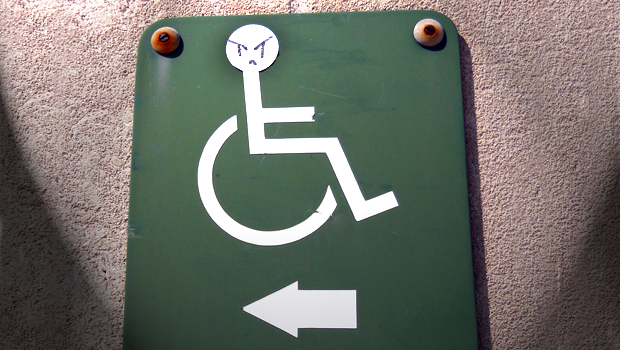

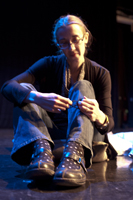 M. Remi Yergeau
M. Remi Yergeau  is an assistant professor of English at the University of Michigan and serves on the board of the Autistic Self Advocacy Network
is an assistant professor of English at the University of Michigan and serves on the board of the Autistic Self Advocacy Network  . She has published in College English, Disability Studies Quarterly, and Computers and Composition Online. (Photo by Lisa Steichmann.)
. She has published in College English, Disability Studies Quarterly, and Computers and Composition Online. (Photo by Lisa Steichmann.)
Pages:
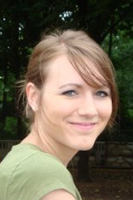 Elizabeth Brewer is a Ph.D. candidate in Rhetoric, Composition, and Disability Studies at The Ohio State University. She has published in Rhetoric Review and presented on ethos construction and psychiatric disability. She lives in Columbus with her husband Brad and her cat George.
Elizabeth Brewer is a Ph.D. candidate in Rhetoric, Composition, and Disability Studies at The Ohio State University. She has published in Rhetoric Review and presented on ethos construction and psychiatric disability. She lives in Columbus with her husband Brad and her cat George.
Pages:
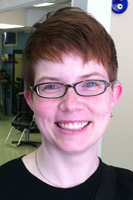 Stephanie L. Kerschbaum is an assistant professor of English at the University of Delaware where she is a faculty affiliate with the Center for the Study of Diversity. Her work has been published in College Composition and Communication and Narrative Discourse Analysis for Teacher Educators.
Stephanie L. Kerschbaum is an assistant professor of English at the University of Delaware where she is a faculty affiliate with the Center for the Study of Diversity. Her work has been published in College Composition and Communication and Narrative Discourse Analysis for Teacher Educators.
Pages:
 Sushil Oswal’s current research interests focus around the questions of digital accessibility and disability. Besides this occupation with access theory in the digital domain, usability testing, web design, and ecological sustainability questions dominate Sushil’s remaining research and teaching time.
Sushil Oswal’s current research interests focus around the questions of digital accessibility and disability. Besides this occupation with access theory in the digital domain, usability testing, web design, and ecological sustainability questions dominate Sushil’s remaining research and teaching time.
Pages:
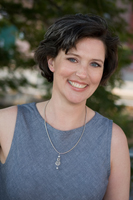 Margaret Price
Margaret Price  is an associate professor of writing at Spelman College in Atlanta. Her book Mad at School: Rhetorics of Mental Disability and Academic Life
is an associate professor of writing at Spelman College in Atlanta. Her book Mad at School: Rhetorics of Mental Disability and Academic Life  was published by the University of Michigan Press in 2011. Other work has appeared in venues ranging from College Composition and Communication to Bitch: Feminist Response to Pop Culture. She is currently at work on a book about the rhetorics of disclosure in academic space.
was published by the University of Michigan Press in 2011. Other work has appeared in venues ranging from College Composition and Communication to Bitch: Feminist Response to Pop Culture. She is currently at work on a book about the rhetorics of disclosure in academic space.
Pages:
 Michael J. Salvo
Michael J. Salvo  is associate professor in the rhetoric and composition program at Purdue University, where he directs the professional writing program. His research explores professional and technical writing and rhetoric, particularly ethical issues related to writing with digital technology in academic and nonacademic settings. With Thomas Rickert, Salvo explored the rhetoric of sound in new media, work awarded both Computers and Composition's Ellen Nold Award and Kairos's Best Webtext Award. In "Deafened to Their Demands" (2002), Salvo first explored issues of deafness and the rhetoric(s) of disability further developed by the authors of this webtext.
is associate professor in the rhetoric and composition program at Purdue University, where he directs the professional writing program. His research explores professional and technical writing and rhetoric, particularly ethical issues related to writing with digital technology in academic and nonacademic settings. With Thomas Rickert, Salvo explored the rhetoric of sound in new media, work awarded both Computers and Composition's Ellen Nold Award and Kairos's Best Webtext Award. In "Deafened to Their Demands" (2002), Salvo first explored issues of deafness and the rhetoric(s) of disability further developed by the authors of this webtext.
Pages:
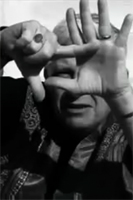 Cynthia L. Selfe
Cynthia L. Selfe  is Humanities Distinguished Professor in the Department of English at The Ohio State University, and the co-Founder, with Gail Hawisher, of Computers and Composition Digital Press
is Humanities Distinguished Professor in the Department of English at The Ohio State University, and the co-Founder, with Gail Hawisher, of Computers and Composition Digital Press  . In 1996, she was recognized as an EDUCOM Medal award winner for innovative computer use in higher education—the first woman and the first English teacher ever to receive this award. She has authored, co-authored, edited, and co-edited numerous books on computers in composition studies.
. In 1996, she was recognized as an EDUCOM Medal award winner for innovative computer use in higher education—the first woman and the first English teacher ever to receive this award. She has authored, co-authored, edited, and co-edited numerous books on computers in composition studies.
Pages:
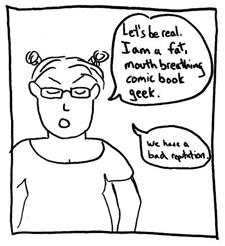 Franny Howes is a PhD candidate in Rhetoric and Writing at Virginia Tech. She has published in Rhetoric Society Quarterly and ImageTeXt
Franny Howes is a PhD candidate in Rhetoric and Writing at Virginia Tech. She has published in Rhetoric Society Quarterly and ImageTeXt  , and her comics are available on the web at www.osiigs.com
, and her comics are available on the web at www.osiigs.com  .
.
Pages: